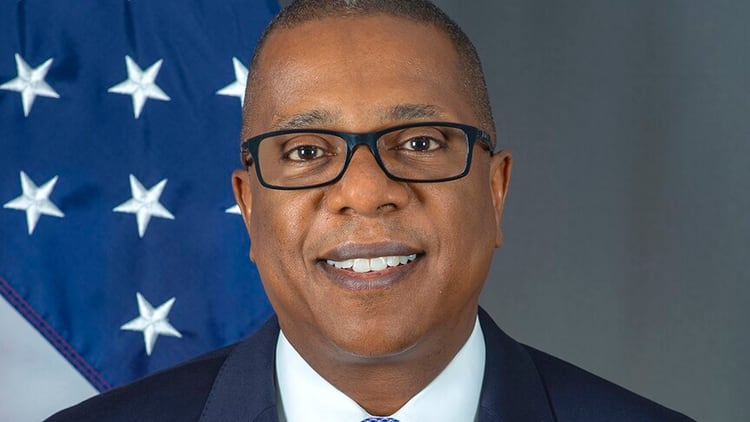Luis Ayllón
The US State Department’s official in charge of relations with Latin America, Brian A. Nichols, will visit Madrid tomorrow, where he will discuss the situation in Venezuela and other countries in the region with the Spanish authorities, diplomatic sources told The Diplomat.
Nichols, who holds the post of Under-Secretary of State for Western Hemisphere Affairs, is the head of the Joe Biden Administration’s relations with Latin American countries, to which he travels frequently.
This will, however, be his first visit to Spain, during which he will chair, together with the State Secretary for Ibero-America, the Caribbean and Spanish in the World, Susana Sumelzo, the Spain-United States working group on Central America.
At the meeting, among other things, the existing cooperation agreements will be analysed, which include offering economic opportunities in Spain to Central American migrants, agreements reached in 2022. In December of that year, Nichols received a Spanish delegation in Washington headed by the then State Secretary for Ibero-America Juan Fernández Trigo, and at the meeting, according to the State Department, they discussed how to “support the people and governments of Central America, expand economic opportunities, and address the root causes of migration”.
On 22 March, Brian Nichols met with the Spanish ambassador to the United States, Ángeles Moreno, with whom he prepared his visit to our country, and discussed Haiti, the situation of democracy in the continent and migration issues. The undersecretary himself indicated on his account on the social network X that he valued “Spain’s solid collaboration in supporting the Multinational Security Support mission in Haiti, promoting legal migration through the ‘Secure Mobility’ initiative and defending democracy in the Americas”.
Nichols’ remarks come as Spain has already admitted at least 281 refugees from Latin America as part of the ‘Secure Mobility’ migration plan launched last year by the United States to manage asylum applications from countries of origin.
Brian Nichols, who is also scheduled to give a lecture tomorrow at Casa América under the slogan: “The United States, Spain and Latin America: Working together to fulfil our common commitment”, will have the opportunity to talk with Susana Sumelzo about the situation in some of the countries in the region, although it is not ruled out that he may also do so with the Minister of Foreign Affairs, José Manuel Albares.
In recent weeks, the State Department, headed by Antony Blinken, has continued to express its concern over the events taking place in some Latin American countries, such as Ecuador, where there is a worrying situation of insecurity; Cuba, which is experiencing serious economic difficulties and has increased its repression of dissidents; and Venezuela, whose president, Nicolás Maduro, continues to obstruct the opposition’s candidacy for the 28 July elections.
In the Cuban case, on 18 March, Nichols wrote on social media that “the United States supports the Cuban people as they exercise their right to assemble peacefully” and warned that “the Cuban government will not be able to meet the needs of its people until it embraces democracy and the rule of law and respects the rights of Cuban citizens”.
Washington’s stance on Cuba is more publicly firm than that of the Spanish government on the Castro regime, as is also the case with Venezuela.
The US is increasingly accusing Nicolás Maduro of not fulfilling some of his key commitments that led to the easing of Washington’s sanctions last year, in the words of Nichols himself, commenting on the Bolivarian regime’s manoeuvres against the opposition, such as the disqualification of its leader, María Corina Machado, and the alternative solutions that opponents are presenting to contest the elections.
Spanish government officials avoid outright condemnation of these manoeuvres and limit themselves to more general statements of disagreement. Thus, at the beginning of March, Spanish Prime Minister Pedro Sánchez publicly referred to Venezuela during a joint press conference with Brazilian President Luiz Inacio Lula da Silva, saying he hoped that the elections would be held with democratic guarantees. Minister Albares, also in early March, said from Colombia that he hoped that the elections in Venezuela would be “inclusive” and that “anyone who wants to compete can do so”.
Nichols will discuss this issue with the Spanish authorities, who have been the main driving force behind the European Union’s review of its sanctions against Venezuela as a result of the agreements reached between the government and the opposition in the Barbados negotiations. The EU decided in November to extend these sanctions for six months until May 2024, but if Maduro’s attitude does not change, it will be very difficult for the Spanish government to continue advocating a review, according to some observers.







